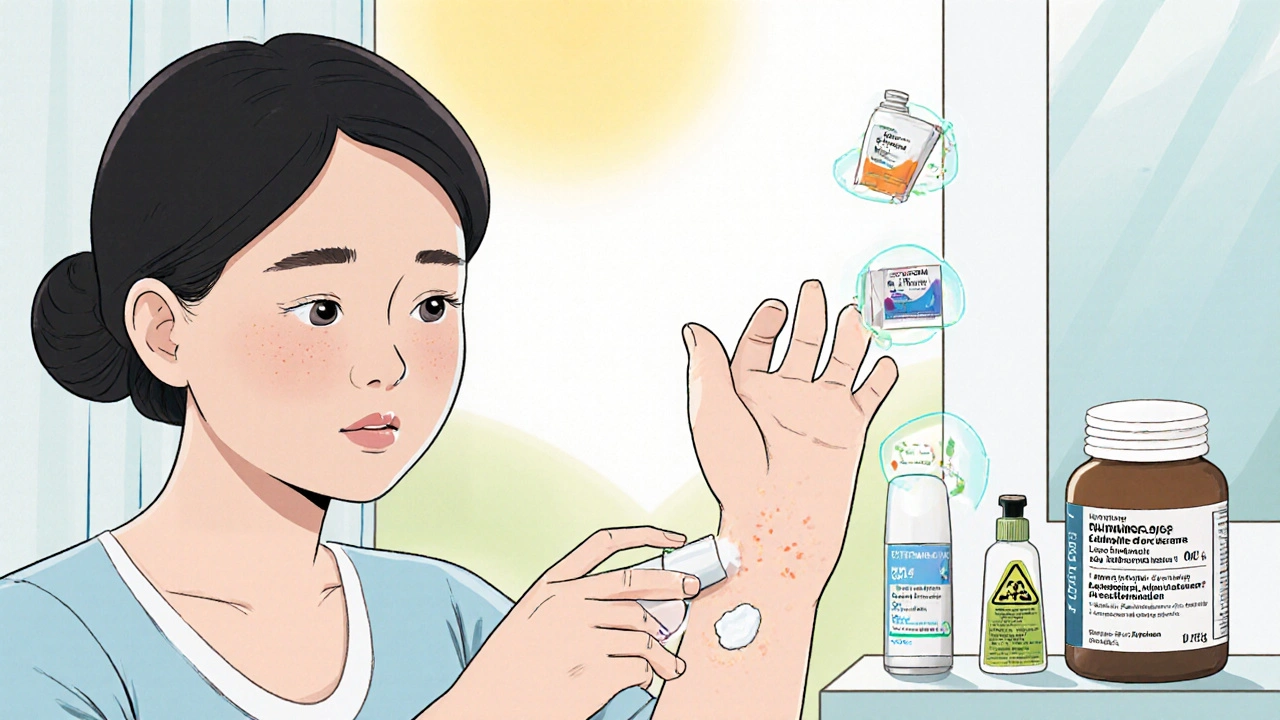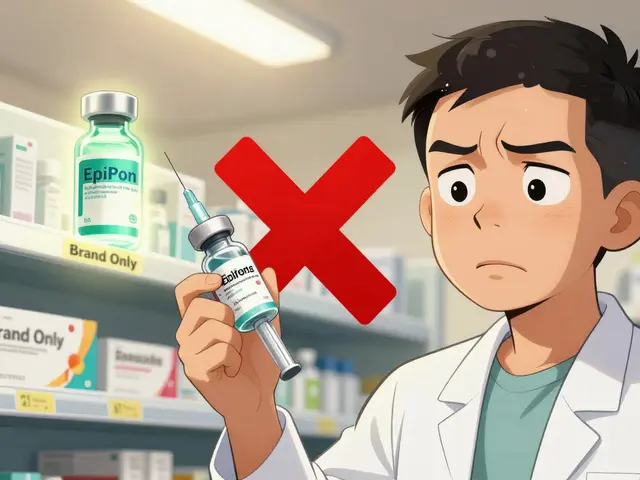Topical Medications in Pregnancy: Safe Options and Real Risks
When you're pregnant, even simple things like acne cream or eczema lotion can feel risky. Topical medications, drugs applied directly to the skin to treat local conditions like rashes, infections, or inflammation. Also known as skin-applied drugs, they’re meant to stay on the surface—but that doesn’t mean they’re harmless during pregnancy. The skin absorbs some of what you put on it, and even small amounts can cross the placenta. That’s why just because something is "external" doesn’t mean it’s safe.
Not all topical meds are created equal. Topical steroids, corticosteroid creams used for eczema, psoriasis, and allergic reactions, are often prescribed during pregnancy—but only low to mid-strength versions are considered low risk. High-potency versions, especially over large areas or for long periods, may affect fetal growth. On the flip side, antifungal creams, like clotrimazole or miconazole used for yeast infections, are generally safe because they barely enter the bloodstream. Even benzoyl peroxide, a common acne treatment, is considered low risk since very little gets absorbed. But avoid salicylic acid in high doses, retinoids like tretinoin, and any product with undisclosed ingredients—especially if it’s marketed as "natural" or "herbal."
What’s tricky is that many pregnant people use over-the-counter products without realizing they contain active drugs. Aloe vera gel might seem harmless, but if it’s mixed with lidocaine or hydrocortisone, you’re no longer just soothing a sunburn—you’re introducing a medication into your system. And don’t assume that because a product is sold in a pharmacy, it’s pregnancy-safe. Pharmacists don’t always screen for pregnancy use unless you ask. The real question isn’t just "Is this approved?" but "Has this been studied in pregnant people?" And the answer for most topical products is: not enough.
You’re not alone in wondering what’s safe. Thousands of pregnant women reach for topical treatments every day—for acne, itching, fungal infections, or even pain from varicose veins. But the data is scattered. Some products have decades of safe use, others have zero studies. That’s why this collection pulls together real, practical insights from trusted medical sources—not marketing claims. You’ll find clear comparisons of what works, what’s risky, and what’s just plain unknown. No fluff. No jargon. Just what you need to know to protect yourself and your baby while managing everyday skin issues.

Safe Topical Medications and Creams During Pregnancy: What You Can and Can’t Use
Learn which topical creams and medications are safe to use during pregnancy, from acne treatments to eczema creams. Avoid risky ingredients and use the safest options with confidence.
Detail




